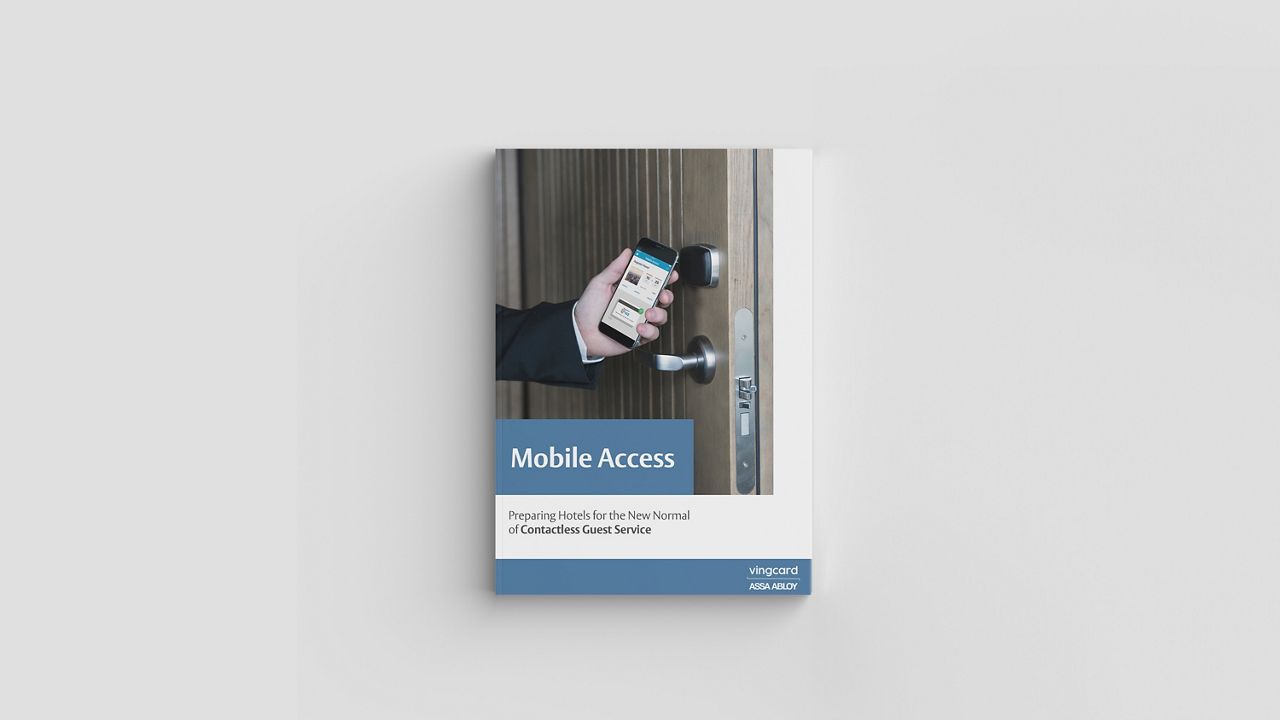
The Leading Products and Solutions That Are Driving Hotel Sustainability Efforts


In today’s hospitality industry, sustainability efforts focused on protecting the environment have become a top priority for virtually any type of hotel business.
And for good reason, too. An overwhelming 85.6 percent of travelers now say they would prefer to pay more if it meant staying at a hotel with eco-friendly practices. For today’s increasingly eco-conscious guests, a hotel’s commitment to environmentalism therefore can play a central role in booking decisions that no hospitality professional should risk to overlook.
With the first blog in our sustainability series tackling what environmental sustainability means for hoteliers, this next entry now takes a closer look at the leading solutions and technologies today’s hospitality professionals are leveraging to boost sustainability efforts. By taking a page out of the best practices of their industry peers, more hoteliers will be able to experiences the many advantages of sustainability, which can not only mean enhanced reputations but also a more profitable, efficient and successful hotel business.
Ditching the Use of Plastic
From cups and straws to shampoo bottles and keycards, examples of the use of plastic at hotels is certainly not hard to come by. The global hotel industry on average produces more than 289,700 tons of plastic waste each year. With much of this waste ultimately ending up in the ocean, it’s no surprise that many hotel businesses have taken on more proactive measures to eliminate plastic use.
Effective solutions, now commonplace at many properties, include the replacing of single-use plastic toiletries with reusable containers. Hyatt Hotels, for example, has implemented a switch to such containers as a requirement for all of its locations. With the average duration for decomposing of a plastic bottle estimated to take 450 years, eliminating single-use containers for more eco-friendly alternatives can undoubtedly decrease the impact that hotels have on the environment by a substantial margin.
Yet another successful example of hotels cutting down on plastic involves guestroom keys. Traditionally designed to use plastic due to lower costs, such keys once a guest’s stay ends are just as likely to end up in landfills and oceans as are plastic straws. Today, hoteliers have a wider and better range of options that are able to minimize any impact on the environment. Examples include first and foremost, going digital as well as seeking keys made out of wood, metal and even paper. Research should be done to fully understand all of the intangibles and costs associated with the production of these alternative options. For example, hoteliers considering wooden keys should examine potential cost increases over plastic, and whether the sustainability issue of deforestation comes into play. Some wooden keys may be created using sustainable practices such as using recycled wood while others may not, for instance. While not ideal, some hoteliers can also consider adopting key cards that are made from 100 percent recycled plastic if they are working with a tight budget.
Although predominantly launched as a service to enhance guest convenience, the adoption of mobile-based keys is providing hoteliers with another viable alternative to reducing the use of plastic. By allowing guests to use personal devices as a digital room key, such technology sidesteps the need for a physical key altogether- meaning no production costs and just as importantly, no environmental waste whatsoever. Yet while mobile key solutions have steadily risen to become a mainstream industry technology, hoteliers should nonetheless maintain physical key options for their less technologically-inclined guests. An ideal approach could therefore be to adopt a combination of mobile keys along with eco-friendly physical key options.
Moving Sustainability into the Cloud
Much has been written on the benefits of cloud technology in terms of providing hotels with more efficient and secure operations, but less known is the fact that these same platforms can also work to reduce a property’s carbon footprint. Using a modern cloud-based security access management system as an example, one key differentiator over legacy platforms is the elimination of onsite-based servers. This significantly means minimizing the presence of high-powered equipment driving up utility bills, and as a result, less electricity being used which likely comes from fossil-based fuel sources. Just by moving software to the cloud, one study indicates that total energy consumption can be reduced by 87 percent.
Further still, cloud-based systems can even cut down the amount of carbon emissions that a hotel directly produces as a result of vehicles and transportation. For example, routine system maintenance or upgrades often involve a need for hotel or solution provider personnel to physically visit a location in order to make any required updates. This inevitably involves using transportation along with generating fossil fuel emissions. In contrast and thanks to their online-supported design, cloud-based systems can be updated or repaired from virtually any location with an internet connection. With an automatic and instant software update, hoteliers can sidestep unnecessary pollution and transportation costs, while also ensuring that their systems are always in peak condition.
Adopting Commercial-grade Laundry Equipment
A hotel’s laundry services are not exactly high on the minds of either property managers or their guests, but they are a crucial aspect of running a clean and efficient business operation. Laundry facilities can represent as much as 20 percent of a hotel’s water consumption, which certainly leads to a rise in the use of natural resources that many guests would prefer to see substantially reduced.
Although hoteliers may be tempted to purchase washers and dryers intended for residential use due to their lower price tags, in truth they are better off purchasing commercial-grade equipment which provide far superior long-term benefits. With commercial washers, for example, water usage can be cut from 7 to 8+ gallons per pound to just 0.5 gallons per pound. Commercial dryers for their part, are credited with being able to cut down energy use by as much as 70 percent. When making laundry equipment purchase decisions, hoteliers should therefore keep in mind that while commercial-grade solutions may involve an initially higher upfront expense, their long-term cost-savings and sustainability-enhancing benefits more than make up for the investment.
A Smarter Approach to Hotel Utility Management
With hoteliers experiencing both sustainability and cost-saving benefits by lowering utility consumption, another effective method that more and more properties are adopting is known as submetering. Using submeters, businesses can monitor their consumption of electricity, water and gas in order to determine how much is precisely used on a daily basis. This can allow hoteliers to identify potential inefficiencies as well as make improvements that can drastically enhance sustainability initiatives. Yet another benefit of submetering is that hoteliers can better anticipate the effects of an increase in utility use, such as when hosting conferences or events, in order to better plan their budgets accordingly.
Utility management is also becoming increasingly more efficient and easier thanks to advances in artificial intelligence. Using machine learning abilities, AI-supported submetering platforms can identify the amount of utility consumption for individual devices such as refrigerators or HVAC systems. This notably can allow hoteliers to more readily identify exactly where inefficiencies exist that are increasing costs and hampering sustainability goals.
Keeping an Eye Out for Eco-friendly Product Certification
Maintaining an environmentally sustainable hotel can certainly be a challenge given the sheer number of products, solutions and equipment that can be found within any building- with each one representing a question over their potential impact on the environment. Fortunately, hoteliers are now able to rely on sustainability verification programs such as the Environmental Product Declaration (EPD) certification. EPD-certified products can include anything from furniture and flooring to even a hotel’s door locks and packaging materials. Importantly, an EPD certification serves to provide full transparency into the processes and materials used to create a solution. EPDs further list a product’s effects on the environment at every stage its life cycle.
By adopting EPD-certified solutions, hoteliers not only can be fully confident that a specific product aligns with their sustainability goals, but also gain a valuable opportunity to provide proof of their commitment to eco-friendly practices to their guests. Each EPD-certified solution can further be leveraged to add points towards green building certification program, such as BREEAM and Green Globes to name a few examples.
To learn more about how sustainability is influencing today’s industry and hotel operations, stay tuned for the next blog entry in our sustainability series for a hotelier’s perspective.
Subscribe to our Newsletter
Fill out the form below to subscribe to our newsletter. By doing so, you'll not only be the first to discover what's next on our blog but also join a community passionate about the innovation and tradition driving the hospitality realm forward.
